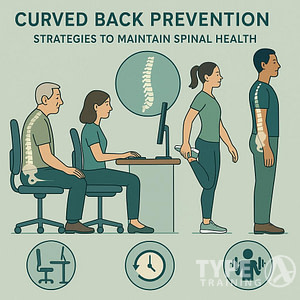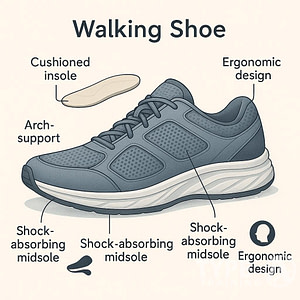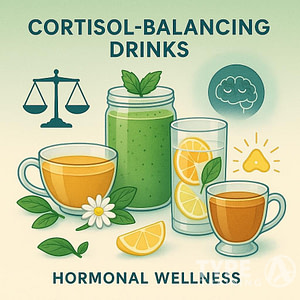Understanding how circadian rhythms impact your sleep is crucial for maintaining good health. Your internal clock, known as the circadian rhythm, is a 24-hour cycle that regulates when you feel alert and when you feel sleepy.
These rhythms help your body know when it’s time to wake up and when it’s time to rest, making them essential for a healthy sleep pattern.
Your circadian rhythm affects more than just sleep. This internal clock also influences your body temperature, hormone levels, and even your digestive system.
When your circadian rhythm is aligned, you feel energized during the day and ready for sleep at night. On the other hand, misalignment can lead to sleep disorders and other health problems.
Popular posts:
Light exposure is one of the biggest factors that can affect your circadian rhythm. Natural light helps keep your internal clock in sync with the environment.
When you spend too much time indoors or expose yourself to artificial light at night, your circadian rhythm can get disrupted, making it harder to fall asleep and wake up refreshed.
Understanding Circadian Rhythms
Your body’s circadian rhythms play a key role in regulating sleep patterns. These natural cycles are influenced by various factors, including biological mechanisms and external light.
The Biology of Circadian Rhythms
Circadian rhythms are controlled by your body’s internal clock, which is located in the brain within the suprachiasmatic nucleus (SCN).
This area coordinates the timing of various bodily functions, such as the release of hormones and body temperature regulation.
The SCN signals the production of melatonin, a hormone that makes you feel sleepy.
The level of melatonin typically increases in the evening, helping prepare your body for sleep, and decreases in the morning, making you awake and alert.
Circadian Rhythm and the Sleep-Wake Cycle
Your sleep-wake cycle is one of the most critical aspects influenced by circadian rhythms. This cycle ensures that you are alert during the day and ready to sleep at night.
Disruptions to this cycle can lead to difficulties in maintaining a regular sleep schedule, affecting your overall health.
Factors like travel, shift work, or even just sleeping at irregular times can misalign your circadian rhythm. When this happens, it can be challenging to fall asleep or wake up at the desired times. Maintaining a consistent sleep schedule helps keep your rhythm in sync.
Light and Dark: Influencers of Biological Clocks
Light and darkness are significant influencers of your circadian rhythms.
Exposure to natural light during the day helps keep your internal clock aligned with the environment. In the evening, reduced light signals the SCN to increase melatonin production, preparing you for sleep.
Artificial light, especially blue light from screens, can interfere with this process.
Limiting exposure to screens before bed can help maintain a healthy sleep pattern. Creating a dark sleeping environment can also support the natural production of melatonin, making it easier to fall asleep and stay asleep.
Factors Influencing Circadian Rhythms
Several factors influence your circadian rhythms, such as light exposure, genetics, age, and lifestyle habits. These elements can either help maintain a healthy sleep-wake cycle or disrupt it, affecting your overall well-being.
Impact of Light Exposure
Light has a significant effect on your circadian rhythm. Natural sunlight helps regulate your body’s internal clock.
When exposed to light, your brain signals to stay awake and alert. Conversely, darkness signals the production of melatonin, a hormone that promotes sleep.
Artificial light, especially from screens, can interfere with this process.
Blue light from devices like smartphones, tablets, and computers can trick your brain into thinking it’s daytime, making it harder to fall asleep. Reducing screen time before bed can help maintain a more natural sleep-wake cycle.
Role of Genetics and Age
Your genes play a role in determining your circadian rhythm. Some people are naturally night owls, while others are early birds.
This genetic predisposition affects when you feel most awake and when you feel the need to sleep.
Age also impacts your circadian rhythm. Teenagers often have a delayed sleep phase, making them stay up late and wake up later.
As you age, your sleep patterns can shift again, often leading to earlier bedtimes and wake times. Understanding these changes can help you adjust your habits for better sleep.
Effects of Lifestyle and Habits
Your daily routine greatly influences your circadian rhythm.
Consistent sleep schedules help regulate your body clock, whereas irregular sleeping patterns can cause disruptions.
Regular exercise can promote a healthy circadian rhythm, but intense physical activity before bed can make it difficult to fall asleep.
Alcohol and caffeine consumption can interfere with your sleep.
While alcohol may initially make you sleepy, it can disrupt your sleep cycle later in the night.
Caffeine, a stimulant, can keep you awake if consumed too close to bedtime. Developing good habits, like maintaining a consistent sleep schedule and avoiding stimulants before bed, can help keep your circadian rhythm in check.
Circadian Rhythms and Health
Circadian rhythms, the body’s internal clock, play a vital role in regulating sleep and overall well-being. Disruptions to these rhythms can lead to various sleep disorders and long-term health consequences, including effects on your immune system.
Sleep Disorders Related to Circadian Rhythms
Disruptions in your circadian rhythm can cause several sleep disorders. One common disorder is delayed sleep phase syndrome.
In this case, you tend to go to bed and wake up much later than usual. This is typical among “night owls.”
Shift work can also disrupt your natural sleep-wake cycle. Working at night or on rotating shifts makes it hard to maintain a consistent sleep schedule. This can lead to insomnia and excessive sleepiness during the day.
Additionally, irregular sleep-wake rhythm disorder means your body lacks a predictable sleep pattern. You might have fragmented sleep periods throughout the day and night.
These disorders can severely impact your daily life and overall health.
Long-Term Health Consequences
Chronic disruptions in your circadian rhythms can lead to serious health problems.
For instance, a disturbed sleep-wake cycle is linked to metabolic issues like diabetes and obesity. This is because your body struggles to regulate blood sugar and fat storage properly.
Cardiovascular health is also affected. Irregular sleep patterns can increase your
Studies show that poor sleep quality can lead to inflammation and other cardiovascular issues.
Furthermore, circadian rhythm disruptions are associated with a higher risk of certain types of cancer.
This connection is particularly evident among those who work night shifts. Maintaining a stable circadian rhythm is crucial for both short-term well-being and long-term health.
Circadian Rhythms and the Immune System
Your circadian rhythms significantly influence your immune system. They help regulate the times when your body is most effective at fighting off infections.
Disruptions can weaken your immune response, making you more susceptible to illnesses.
For example, poor sleep quality can impair the production of cytokines.
These are proteins that help combat infections and inflammation. When your sleep is irregular, your immune function drops, leaving you vulnerable.
People with circadian rhythm disorders often have higher levels of chronic inflammation. This kind of inflammation is linked to various health issues, including autoimmune diseases. Maintaining a regular sleep pattern strengthens your immune system and supports overall health.
Adjusting and Optimizing Your Circadian Rhythm
To adjust and optimize your circadian rhythm, focus on creating a sleep-friendly environment and developing healthy sleep habits. Consider strategies for managing shift work and travel to maintain a consistent sleep schedule.
Creating a Proper Sleep Environment
Your sleep environment plays a crucial role in regulating your circadian rhythm.
Ensure your bedroom is dark, quiet, and cool to promote restful sleep. Use blackout curtains or an eye mask to block out light that can disrupt melatonin production.
A consistent room temperature around 65°F (18°C) can help your body maintain its natural sleep rhythms.
Consider adding a white noise machine or earplugs to mask outside noises. Remove electronic devices that emit blue light, which can interfere with your sleep-wake cycle.
Opt for a comfortable mattress and pillows that support your preferred sleeping position to improve sleep quality.
Developing Healthy Sleep Habits
Establishing a consistent sleep schedule is key to optimizing your circadian rhythm.
Go to bed and wake up at the same time every day, even on weekends. This helps regulate your internal clock and improves sleep quality.
Limit naps to 20-30 minutes in the early afternoon to avoid disrupting your nighttime sleep.
Engage in regular physical activity, but avoid vigorous exercise close to bedtime.
Create a relaxing pre-sleep routine, such as reading or taking a warm bath, to signal to your body that it’s time to wind down. Avoid caffeine and heavy meals in the evening, as these can interfere with falling asleep.
Strategies for Shift Work and Travel
Shift work and travel can disrupt your circadian rhythm, but you can minimize negative effects with specific strategies.
For shift workers, maintain a consistent sleep schedule even on days off.
Use light therapy to help adjust your internal clock by exposing yourself to bright light during your work hours and avoiding light exposure when it’s time to sleep.
When traveling across time zones, try to gradually shift your sleep schedule to match your destination.
Stay hydrated and spend time outside in natural daylight to help reset your internal clock. Consider melatonin supplements to aid in adjusting your sleep schedule, especially when dealing with jet lag.
Circadian Rhythms Throughout Life
Circadian rhythms guide your sleep-wake cycles from infancy through old age. These rhythms change significantly as you go through different life stages due to hormonal shifts and external factors.
Children and Teenagers
Your sleep-wake cycle starts developing in infancy. Babies don’t have a stable circadian rhythm initially, often waking up every few hours.
As babies grow into children, their circadian rhythms stabilize, leading them to naturally wake early and go to bed earlier.
During teenage years, a shift called sleep phase delay occurs. Teenagers may not feel tired until late at night, sometimes around midnight. This leads to a natural tendency to sleep in later.
Hormonal changes during puberty significantly impact this shift, making it harder for teenagers to maintain early schedules.
Adulthood and Aging
In adulthood, circadian rhythms typically align with a regular 24-hour cycle. You might find that consistent work schedules and daily routines help in maintaining a stable rhythm.
Factors like stress and inconsistent sleep times can disrupt this balance, leading to sleep disorders.
As you age, circadian rhythms tend to shift again. Many older adults find themselves waking earlier in the morning and feeling sleepy earlier in the evening.
Aging may reduce the production of melatonin, a hormone crucial for sleep regulation, affecting the sleep-wake cycle.
Pregnancy and Postpartum Period
Pregnancy brings along significant hormonal changes that can affect circadian rhythms. Many pregnant women experience altered sleep patterns, with increased daytime sleepiness and disrupted night sleep.
Hormonal fluctuations, especially in estrogen and progesterone levels, play key roles in these changes.
After childbirth, new mothers often face fragmented sleep patterns due to the needs of their newborns. Babies typically have irregular sleep cycles, leading to frequent awakenings at night.
This can lead to increased stress and fatigue. Establishing a sleep routine for the baby can gradually help normalize sleep for both mother and child.
The Psychological Effects of Circadian Disruption
Disruptions in your circadian rhythms can lead to significant psychological impacts. These include mood disorders and altered cognitive performance, which can affect daily functioning.
Mental Health and Mood Disorders
Disruption to circadian rhythms is closely tied to various mood disorders. Conditions such as depression and anxiety often correlate with altered sleep-wake cycles.
For instance, shift workers, who experience irregular sleep patterns, frequently report higher levels of stress and depression compared to those with regular schedules.
Studies have shown that circadian rhythm disruption can affect the secretion of cortisol, a hormone linked to stress.
When your sleep schedule is out of sync, it can lead to prolonged periods of poor sleep quality. This, in turn, affects your mental health.
Over time, the lack of restorative sleep can increase the risk of developing serious mood disorders, including major depressive disorder and bipolar disorder.
Research suggests that fixing sleep patterns can help alleviate some symptoms of these conditions.
Cognition and Performance
Circadian disruption doesn’t only influence mood; it also affects cognition and performance.
Irregular sleep patterns can impair memory, making it more difficult to retain information. This is particularly problematic for students and professionals who need to keep their memory sharp.
Additionally, disrupted circadian rhythms can hamper your cognitive functions, such as problem-solving abilities and reaction times.
You might notice a decline in job performance or academic achievements. Studies have found that poor sleep due to circadian rhythm disruption can result in reduced concentration and decision-making skills.
Frequently Asked Questions about Circadian Rhythms Impact Sleep
Circadian rhythms play a crucial role in regulating your sleep patterns, mood, and overall health. Here, we answer some common questions about how these rhythms impact sleep.
What are the consequences of circadian rhythm disorders on sleep quality?
Circadian rhythm disorders can lead to poor sleep quality. You may experience insomnia, excessive daytime sleepiness, and difficulty concentrating.
Sleep disorders like advanced sleep phase disorder, delayed sleep phase disorder, and non-24-hour sleep-wake disorder are examples of conditions caused by circadian rhythm disruptions.
Which brain region is responsible for regulating circadian rhythms that influence sleep?
The suprachiasmatic nucleus (SCN) in the hypothalamus is the primary brain region that controls circadian rhythms.
The SCN receives information about light exposure from the eyes and uses this data to regulate your sleep-wake cycle and other physiological processes.
How can one reset their circadian rhythm to improve sleep patterns?
To reset your circadian rhythm, maintain a consistent sleep schedule, even on weekends.
Expose yourself to natural light during the day, especially in the morning. Avoid screens and bright artificial lights before bedtime.
Regular exercise and a healthy diet can also help align your internal clock.
In what ways do circadian rhythms synchronize with sleep-wake cycles?
Circadian rhythms synchronize with sleep-wake cycles through light exposure.
When it gets dark, your body produces melatonin, making you feel sleepy. In contrast, daylight suppresses melatonin production and increases cortisol levels, helping you feel alert and awake.
These cycles align with the natural patterns of day and night.
Are there specific hormones that govern circadian rhythms, and how do they affect sleep?
Yes, melatonin and cortisol are key hormones regulating circadian rhythms.
Melatonin is produced in response to darkness and promotes sleep. Cortisol levels rise in the morning to help you wake up and stay alert.
Disruptions in these hormone levels can lead to sleep disorders.
What methods are used to diagnose circadian rhythm abnormalities?
Diagnosing circadian rhythm abnormalities involves a combination of sleep diaries, actigraphy, and polysomnography. Actigraphy uses a wrist-worn device to monitor activity and rest. Meanwhile, polysomnography is a comprehensive sleep study.
Doctors may also use questionnaires and interviews to understand your sleep patterns and light exposure.













